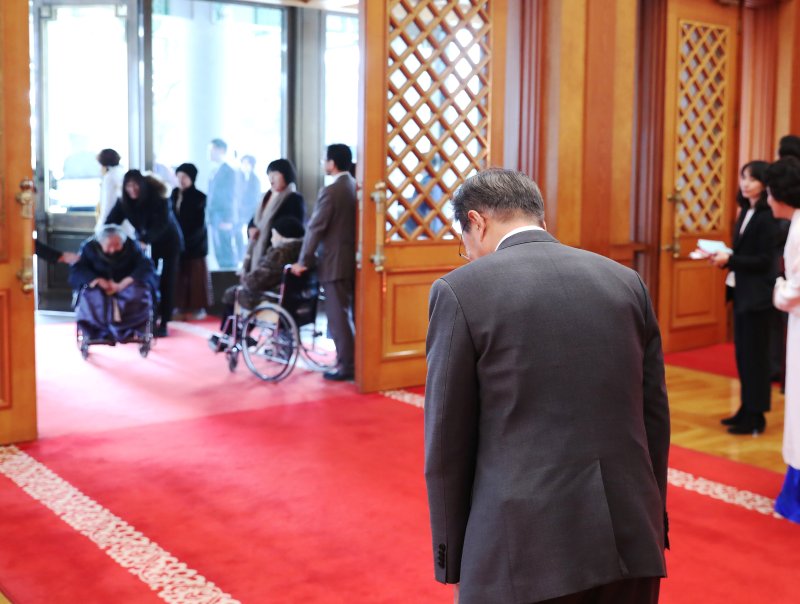South Korean president apologises to victims of Japan's wartime sex slavery over past administration's controversial deal with Japan. Photo Courtesy of Cheong Wa Dae/Yonhap.
SEOUL, South Korea, Jan. 4 (UPI) -- South Korean President Moon Jae-in has apologized to the victims of Japan's wartime sex enslavement over a controversial 2015 deal reached by Seoul and Tokyo to resolve the contentious historical issue.
Moon delivered a face-to-face apology to eight elderly victims who were invited to the presidential office on Thursday, Hankook Ilbo reported.
He expressed his regret that the past government did not consult them during negotiations with Japan, adding that the process and the deal itself had been flawed.
The bilateral agreement, which included a one billion yen contribution toward a fund for the elderly victims and an acknowledgement of their plight from Tokyo, was considered insincere and insufficient by a majority of the Korean public as it failed to reflect the wishes of the victims themselves.
A government panel last week revealed that deal had not included the victims in the negotiations which was also found to have been dominated by the presidential office under the previous Park Geun-hye administration.
The panel's review also found that major concessions made to Tokyo were not disclosed to the public. These included an agreement to use the euphemism "comfort women" to describe the victims.
Moon reportedly told the victims that while the pact was an official agreement reached by the two governments, it cannot be accepted as a solution to the wartime sexual slavery issue.
He said he would try to ensure their voices are reflected in the government's future decisions, Yonhap reported.
After the panel's findings were unveiled, the government pledged follow-up measures that would take a "victim-centered" approach, raising questions on the future of the deal.
Tokyo's foreign ministry has voiced opposition to making any changes to the pact. Prime Minister Shinzo Abe has reportedly said the deal will not move by "even a millimeter."















